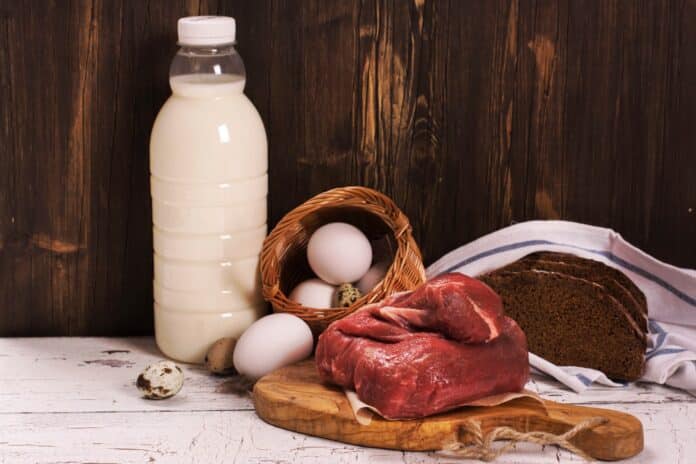A fatty acid called trans-vaccenic acid (TVA), found in meat and dairy from grazing animals like cows and sheep can enhance the ability of CD8+ T cells to enter tumors and eliminate cancer cells. A recent study from the University of Chicago, published in Nature, reveals that patients with higher levels of TVA in their blood respond better to immunotherapy. This suggests that TVA could be a potential nutritional supplement to support cancer treatments.
Jing Chen, Ph.D., the Janet Davison Rowley Distinguished Service Professor of Medicine at UChicago and one of the senior authors of the new study, said, “Many studies are trying to decipher the link between diet and human health, and it’s tough to understand the underlying mechanisms because of the wide variety of foods people eat. But suppose we focus on just the nutrients and metabolites derived from food. In that case, we see how they influence physiology and pathology.”
“By focusing on nutrients that can activate T cell responses, we found one that actually enhances anti-tumor immunity by activating an important immune pathway.” He added.
Chen’s lab studies how substances in the blood affect cancer development and response to treatments. Postdoctoral fellows Hao Fan, PhD, and Siyuan Xia, PhD, created a library of 255 nutrient-derived molecules in their recent study.
They tested these compounds for their impact on anti-tumor immunity by activating CD8+ T cells, which are crucial for killing cancer cells. After evaluating the top six candidates in human and mouse cells, they found that trans-vaccenic acid (TVA) performed the best. TVA, the most abundant trans fatty acid in human milk, showed promise for enhancing anti-tumor immune responses.
The researchers tested trans-vaccenic acid (TVA) by feeding mice a diet enriched with it, and they observed significant reductions in the growth potential of melanoma and colon cancer cells compared to mice on a regular diet. The TVA-enriched diet also improved the ability of CD8+ T cells to enter tumors.
Molecular and genetic analyses, including a novel KAS-seq technique, revealed that TVA inactivates a cell surface receptor called GPR43. Usually activated by short-chain fatty acids from gut microbiota, GPR43 is overridden by TVA, activating the CREB pathway. This pathway is crucial for cellular functions like growth, survival, and differentiation. Removing the GPR43 receptor from CD8+ T cells in mouse models resulted in losing their enhanced tumor-fighting ability.
The team collaborated with Dr. Justin Kline to study blood samples from lymphoma patients undergoing CAR-T cell immunotherapy. Higher levels of TVA in patients correlated with better treatment responses. Additionally, they worked with Dr. Wendy Stock to test leukemia cell lines, revealing that TVA improved the effectiveness of an immunotherapy drug in killing leukemia cells.
The study suggests that trans-vaccenic acid (TVA) could be a beneficial dietary supplement for T cell-based cancer treatments. Determining the optimal amount of the nutrient itself is crucial, not just relying on the food source. While the study doesn’t encourage increased consumption of red meat and dairy due to known health risks, it highlights the potential of nutrient supplements like TVA to boost T cell activity. The researchers also believe other plant-derived fatty acids may have similar effects, signaling through the same receptor and activating the CREB pathway.
The new research shows the potential of a ‘metabolomic’ approach in understanding how diet’s building blocks impact health. The team aims to create a comprehensive library of nutrients in the blood to comprehend their influence on immunity and aging. Despite millions of years of evolution, only a few hundred food-derived metabolites circulate in the blood, indicating their potential significance in our biology. Chen deemed the discovery of TVA’s targeted impact on specific immune cells and its profound physiological response at the organism level fascinating.
This research not only unveils the positive influence of TVA on anti-tumor immunity but also highlights the promising metabolomic approach to comprehending how dietary components contribute to our health. The study opens avenues for further exploration into the intricate relationships between nutrients, immunity, and overall well-being.
Journal reference:
- Fan, H., Xia, S., Xiang, J. et al. Trans-vaccenic acid reprograms CD8+ T cells and anti-tumour immunity. Nature. DOI: 10.1038/s41586-023-06749-3.
